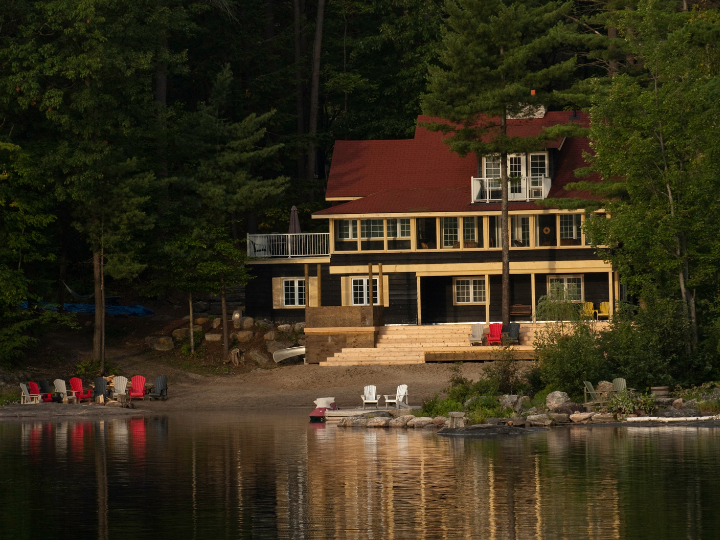Things to Keep in Mind When Purchasing a New Home
May, 5 2022″
The Ontario real estate market is booming, and housing prices are rising. With so many homes being bought and sold, consumers must be as educated as possible. As a new home buyer, you may have already gotten a crash course in real estate while navigating the process. But what you may not have considered is homeowners’ insurance and how it may impact searching for your next home. Here are the top things you should keep in mind when buying a house in Ontario.
Location
The old adage of location being one of the most vital aspects of real estate is true. The location of the property you are looking to buy is essential not only because it cannot easily be changed but also because it affects many other parts of your life. For example, what schools your children will attend, your proximity to places like work or grocery stores, and how close (or far) you will be from family and friends.
But the location of your next home also has insurance implications as well. If you own a car, the price of your auto insurance is partially based on where you live, as is your homeowners’ insurance. While the insurance price may be of lower importance in the search for your next home, it should definitely be a consideration, especially as it relates to budgeting for your new expenses.
In addition, it is critical to know how far away your home is from a fire hydrant and fire station, as these are the best way to mitigate significant fire losses. If your new home is in a remote location and miles away from the nearest fire department, this scenario is far riskier than a home with a fire station across the street, for example.
Age of The Home
If you are thinking of purchasing an older home, one that was built over 50-100 years ago, there are a few things to consider. First, you must be aware of the challenges you may encounter with maintenance or upkeep. For example, electrical or heating systems that have not been updated can be costly to replace or repair if they break down.
When it comes to home insurance, many companies require updated systems in order for the home to be eligible for coverage. This may require you to pay out of pocket or negotiate with the sellers to replace any outdated items. Otherwise, you risk paying more money for insurance or being unable to find a company to insure the home.
Another consideration is that building codes change over time. This means the things that were built years ago are not necessarily up to code now. If there is a loss for which you will need to file a homeowner’s claim, it may cost more to repair or bring the home up to modern standards. In this case, you will want to add a special endorsement known as bylaw coverage onto your homeowners’ policy, which will pay for the additional expenses to upgrade.
Selling Price
No one wants to pay more than a house is worth, but it can happen, especially in a hot real estate market. However, an important piece to remember is that the selling price is most often not what the home will be insured for. Once your offer is accepted, and you start to get quotes for home insurance, your broker will complete a replacement cost estimator to determine what it will cost to rebuild the home in a loss.
The calculator will take things such as square footage into account, as well as wall, ceiling, and flooring materials. Unique features of the home are also considered, such as pocket doors or bay windows. The replacement cost amount also includes additional costs such as debris removal and construction costs. It does not include the cost of the land itself. This could be why there is a discrepancy between what you purchase the home for and the amount of insurance.
The disparity can be even more significant with the state of the current Ontario real estate market, so it is a good idea to be prepared.
Home Updates
As previously mentioned, you can run into issues if your new home has older electrical or heating systems. But regardless of the age, you should also determine when other vital parts of your home were updated and their condition, such as your plumbing and roof. Specifically, what are the pipes made out of, and have there been any previous issues with water leaks? When was the roof last updated, and what is the material? This is not only valuable information for you as a buyer, but it is also essential for your home insurance.
The age and material of the plumbing and roof are often used in determining the replacement cost, and some companies may even offer discounts based on any recent updates. For instance, if the roof was recently replaced, you may qualify for a credit on your insurance policy.
Protective Devices
Lastly, look at what the prior owners used for protective devices. Do they have any alarms hardwired in the home? Or any water sensors installed on the plumbing? This can be useful in a few different ways.
First, these devices may indicate pride of ownership, which usually means the home has been well maintained. Anything that may have caused a loss has been mitigated with the presence of these devices. As such, this helps give you peace of mind that the home you are buying has either not sustained these losses or has a lesser chance of these losses occurring in the future. The extra benefit is that many insurance companies will offer discounts for these devices so that you will save money on your home insurance premium as well.
How Can I Learn More?
Once you have found your dream home, let the experts help you insure it. The brokers at Duliban Insurance have been in business for over forty years and are ready to answer any questions you have on your home insurance needs.












